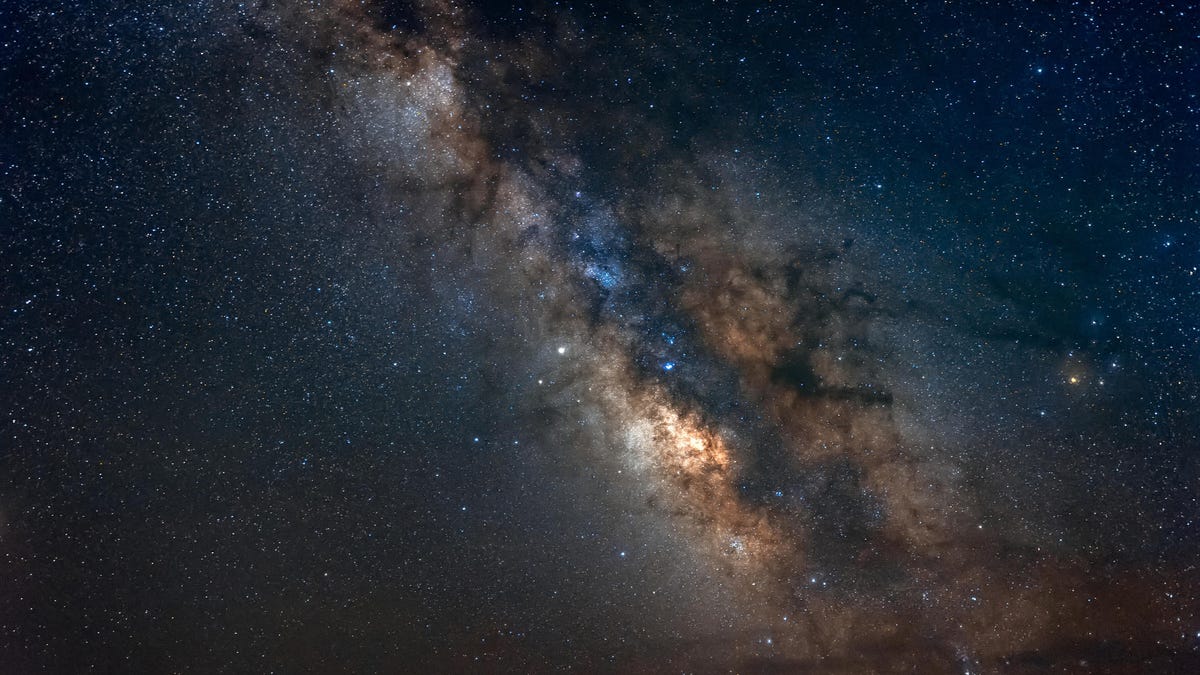Nobel Prize in physics: 2019 winners made significant cosmological discoveries
The award goes to a trio of scientists for giving us a new understanding of the universe.

The universe is a little less mysterious thanks to these scientists.
The Nobel Prize in physics for 2019 was awarded to three scientists on Tuesday for groundbreaking work on the evolution of the universe and Earth's place in it. Their discoveries have forever "transformed our ideas about the cosmos" and helped answer fundamental questions about existence, said the Royal Swedish Academy of Sciences.
Half of the award went to James Peebles, a physicist with Princeton University, for developing a theoretical framework that traces the the history of the universe, from the Big Bang to present day. His contributions to the Big Bang model and other work led to insights that just 5% of the universe is known matter -- everything from stars to plants to humans -- and the remaining 95% is unknown dark matter and dark energy.
"When I started working in this subject -- I can tell you the date, 1964 --at the invitation of my mentor, Professor Robert Henry Dicke, I was very uneasy about going into this subject because the experimental observational basis was so modest. ... I just kept going," Peebles said during a news conference, according to Princeton University. "Which particular step did I take? I would be very hard-pressed to say. It's a life's work."
2019 #NobelPrize laureate James Peebles took on the cosmos, with its billions of galaxies and galaxy clusters. His theoretical framework, developed over two decades, is the foundation of our modern understanding of the universe’s history, from the Big Bang to the present day. pic.twitter.com/fly4alndv9
— The Nobel Prize (@NobelPrize) October 8, 2019
The other half was jointly awarded to Michel Mayor, an astrophysicist with the University of Geneva, and Didier Queloz, an astronomer with the University of Geneva and University of Cambridge, for the first discovery of a planet outside our solar system. In October 1995, the two scientists discovered the first exoplanet in the Milky Way, planet 51 Pegasi b. Since their initial discovery, more than 4,000 exoplanets have been found in our home galaxy, according to the Royal Swedish Academy of Sciences.
This year’s Physics Laureates Michel Mayor and Didier Queloz have explored our home galaxy, the Milky Way, looking for unknown worlds. In 1995, they made the first discovery of a planet outside our solar system, an exoplanet, orbiting a solar-type star, 51 Pegasi.#NobelPrize pic.twitter.com/XAZ1CZD40m
— The Nobel Prize (@NobelPrize) October 8, 2019
On Monday, three scientists were awarded the 2019 Nobel Prize for physiology and medicine for discovering how cells sense and adapt to oxygen availability. The findings could lead to new strategies to fight anemia, cancer and other diseases. The 2019 Nobel Prize in Chemistry is expected to be announced Wednesday.
Originally published Oct. 8, 6:54 a.m. PT.
Updates, 7:22 a.m.: Adds more background and comment from James Peebles. And 9:37 a.m.: Adds details on Nobel Prize in medicine.

